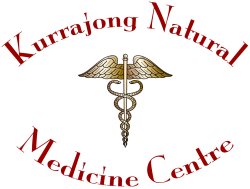The Herbalist's Prescription: The Art of Herbal Medicine
In an era where people are increasingly seeking natural alternatives to promote health and well-being, Kurrajong Natural Medicine Centre stands out as a sanctuary of holistic healing. With a commitment to providing personalised care and a focus on natural remedies, this renowned centre has become a trusted haven for individuals seeking a balanced approach to wellness. In this article, we delve into the healing power of herbal remedies and explore how the practitioners at Kurrajong Natural Medicine Centre harnesses their potential to enhance overall health and vitality.
Unveiling the Wonders of Herbal Medicine:
A Brief History of Herbal Medicine and Its Enduring Popularity - A Herbalist's History
Herbal medicine, also known as herbalism or botanical medicine, is one of the oldest forms of healthcare known to humanity. It has been practiced for thousands of years in various cultures around the world and continues to be a popular approach to healing and wellness.
Ancient Civilisations and Traditional Systems:
The roots of herbal medicine can be traced back to ancient civilisations such as the Egyptians, Greeks, Romans, Chinese, and Indians. These cultures recognised the medicinal properties of plants and developed comprehensive systems of herbal medicine.
In Egypt, records dating back to around 3000 BCE reveal the use of herbs by local herbalists for medicinal purposes. The Ebers Papyrus, an ancient Egyptian medical text, contains information on hundreds of herbal remedies used to treat various ailments.
The Greeks made significant contributions to herbal medicine through the works of renowned figures like Hippocrates, often referred to as the “Father of Medicine.” Hippocrates emphasised the importance of the body’s natural healing abilities and believed that plants held the key to restoring health.
Traditional Chinese Medicine (TCM) emerged over 2,000 years ago and incorporates herbal medicine as a fundamental component. Chinese herbalists developed a sophisticated understanding of herbs, their properties, and their interactions within the body, which forms the basis of TCM to this day.
Herbal medicine also thrived in other ancient civilisations, including those of the Mayans, Aztecs, and Indigenous cultures worldwide. Each culture developed its own unique herbal remedies based on their local flora and traditional knowledge.
The Middle Ages and Renaissance
During the Middle Ages, herbal medicine continued to be practiced in Europe, although it faced challenges with the rise of the church and its association with magic and witchcraft. However, monastic orders, such as the Benedictines and Cistercians, preserved herbal knowledge and continued to cultivate medicinal plants.
The Renaissance period witnessed a resurgence of interest in herbal medicine, driven by advancements in botany and increased exploration. Prominent figures like Paracelsus, a Swiss physician and alchemist, contributed to the understanding of herbal remedies and their potential benefits.
Modern Era and Current Popularity:
With the advent of modern medicine and the discovery of synthetic drugs, herbal medicine experienced a decline in popularity. However, the past few decades have seen a revival of interest in natural and holistic approaches to health, leading to the resurgence of herbal medicine.
Today, herbal medicine enjoys enduring popularity due to several factors. Firstly, many people seek alternatives to conventional medicine, valuing the gentler and more holistic approach of herbal remedies. Additionally, the increased availability of scientific research on the efficacy of certain herbs has boosted credibility.
Additionally, the growing concern about the potential side effects and overuse of pharmaceutical drugs has driven individuals to explore natural alternatives. The appeal of herbal medicine lies in its emphasis on the healing power of nature, promoting overall well-being and addressing the root causes of health issues. As more people embrace the concept of personalised healthcare, herbal medicine offers the advantage of tailoring treatments to individual needs. Herbalists take into account a person’s unique constitution and consider the whole person when creating treatment plans, fostering a deeper connection between patients and their health.
In short, herbal medicine has a rich and enduring history that spans civilisations and cultures. Its popularity persists today as individuals seek natural and holistic approaches to healthcare. With its roots deeply embedded in traditional knowledge and its ongoing adaptation to modern needs, herbal medicine continues to play a significant role in promoting wellness and healing.
Explore the science behind herbal remedies and their therapeutic properties
The science behind herbal remedies encompasses a multidisciplinary field of study that combines traditional knowledge, modern research, and pharmacology to understand the therapeutic properties of plants and their potential benefits for human health. Below are some key aspects of the science behind herbal remedies:
Phytochemical Composition: Plants contain a wide array of chemical compounds known as phytochemicals, which contribute to their medicinal properties. These include alkaloids, flavonoids, terpenes, phenols, and many others. Phytochemicals often act synergistically within a plant, producing complex effects that can be beneficial for various health conditions.
Pharmacological Actions: Herbal remedies exert their therapeutic effects through diverse pharmacological actions. For example:
- Anti-inflammatory: Some herbs possess anti-inflammatory properties that can help reduce inflammation and associated symptoms.
- Antioxidant: Many herbs are rich in antioxidants, which can neutralise harmful free radicals and protect against oxidative stress.
- Antimicrobial: Certain herbs exhibit antimicrobial properties, helping to combat bacterial, viral, or fungal infections.
- Adaptogenic: Adaptogenic herbs can enhance the body’s ability to adapt and cope with stress, promoting overall well-being.
- Immunomodulatory: Herbal remedies can modulate the immune system, supporting its function and balance.
Mechanisms of Action: Herbal remedies can influence the body through various mechanisms of action. These mechanisms may include:
- Receptor binding: Phytochemicals can bind to specific receptors in the body, triggering physiological responses.
- Enzyme inhibition: Some herbs can inhibit enzymes that are involved in disease processes or inflammation.
- Gene expression modulation: Certain phytochemicals can influence gene expression, leading to specific health benefits.
- Cellular signalling: Herbal compounds may affect signalling pathways within cells, regulating various physiological processes.
Scientific Research: Modern scientific research plays a crucial role in understanding the therapeutic properties of herbal remedies. Studies employ various methods, such as laboratory experiments, animal models, and clinical trials, to investigate the efficacy, safety, and mechanisms of action of herbal preparations.
Traditional Knowledge and Traditional Systems: Traditional systems of medicine, such as Traditional Chinese Medicine (TCM) and Ayurveda, have accumulated extensive knowledge about the therapeutic properties of herbs through centuries of observation and practice. Traditional knowledge serves as a valuable foundation for scientific research and can guide the discovery and validation of herbal remedies.
- Standardisation and Quality Control: To ensure the safety and efficacy of herbal remedies, quality control measures are essential. Standardisation involves establishing consistent levels of active compounds in herbal preparations, ensuring reliable dosing and effects. Quality control also involves testing for contaminants, such as heavy metals or pesticides, to guarantee the purity of herbal products.
- Integration with Modern Medicine: The science behind herbal remedies is not exclusive to traditional medicine but can also intersect with modern medicine. Some herbal compounds have been isolated and used as the basis for the development of conventional drugs. Additionally, complementary and integrative medicine approaches often incorporate herbal remedies alongside conventional treatments for a more comprehensive and personalised healthcare approach.
In short, the science behind herbal remedies involves understanding the phytochemical composition of plants, investigating their pharmacological actions and mechanisms of action, conducting scientific research, and integrating traditional knowledge. By combining traditional wisdom with modern scientific methods, the therapeutic properties of herbal remedies can be better understood, leading to their effective and evidence-based use in promoting health and well-being.
Highlight the advantages of herbal medicine over conventional treatments
Herbal medicine offers several advantages over conventional treatments, providing individuals with alternative options for promoting health and managing various health conditions. Here are some key advantages of herbal medicine:
- Natural and Holistic Approach: Herbal medicine focuses on using natural plant-based remedies to support the body’s innate healing capacity. It embraces a holistic approach that considers the whole person, addressing not only the symptoms but also the underlying causes of a condition. This approach aims to restore balance and promote overall well-being, rather than just alleviating isolated symptoms.
- Fewer Side Effects: Compared to many conventional treatments, herbal medicine often has fewer side effects. Pharmaceutical drugs can sometimes cause adverse reactions or interactions with other medications, whereas herbal remedies are generally considered gentler on the body. However, it is important to note that herbal remedies can still have potential interactions and side effects, and consultation with a qualified herbalist or healthcare professional is advised.
- Personalised Treatment: Herbal medicine emphasises personalised treatment plans. Herbalists take into account an individual’s unique constitution, medical history, and specific health needs. They consider the whole person, including physical, mental, and emotional aspects, to create tailored herbal formulations. This personalised approach recognises that different individuals may respond differently to treatments and allows for individualised care.
- Long-standing Traditional Knowledge: Herbal medicine draws upon centuries of traditional knowledge and wisdom from various cultures worldwide. Traditional systems, such as Traditional Chinese Medicine (TCM) and Ayurveda, have documented the use of herbs and their effects over generations. This accumulated knowledge provides a rich foundation for understanding the therapeutic properties of plants and their potential benefits.
- Supportive of Self-Care: Herbal medicine encourages individuals to actively participate in their own healthcare. It empowers people to take charge of their well-being through self-care practices, such as making herbal teas, incorporating herbs into daily routines, and adopting healthy lifestyle habits. Herbal medicine promotes self-awareness, self-education, and self-responsibility, fostering a proactive approach to health.
- Complementary to Conventional Treatments: Herbal medicine can often be used alongside conventional treatments, complementing their effects. Integrative approaches that combine herbal remedies with conventional medicine can offer a comprehensive and synergistic approach to health. This integration allows for a broader range of options and a more personalised treatment plan tailored to individual needs.
- Sustainable and Environmentally Friendly: Herbal medicine promotes the use of sustainable and environmentally friendly practices. It encourages the cultivation and responsible harvesting of medicinal plants, minimizing the impact on ecosystems. Additionally, herbal remedies often have a lower carbon footprint compared to the production and distribution processes associated with pharmaceutical drugs.
- Cultural and Historical Significance: Herbal medicine has deep cultural and historical significance. It connects individuals to their cultural heritage, traditional practices, and ancestral wisdom. For many people, using herbal remedies is a way to honor and preserve their cultural identity and maintain a sense of connection to their roots.
It’s important to note that while herbal medicine has numerous advantages, it is not a replacement for conventional medical care. In certain situations, such as acute or life-threatening conditions, conventional treatments may be necessary. It is always advisable to consult with qualified healthcare professionals or licensed herbalists when considering herbal remedies as part of a treatment plan.
So, herbal medicine offers a natural and holistic approach, with fewer side effects, personalised treatment, long-standing traditional knowledge, and the potential for complementary use alongside conventional treatments. It supports self-care practices, promotes sustainability, and carries cultural and historical significance, providing individuals with a diverse range of advantages in their pursuit of health and well-being.




